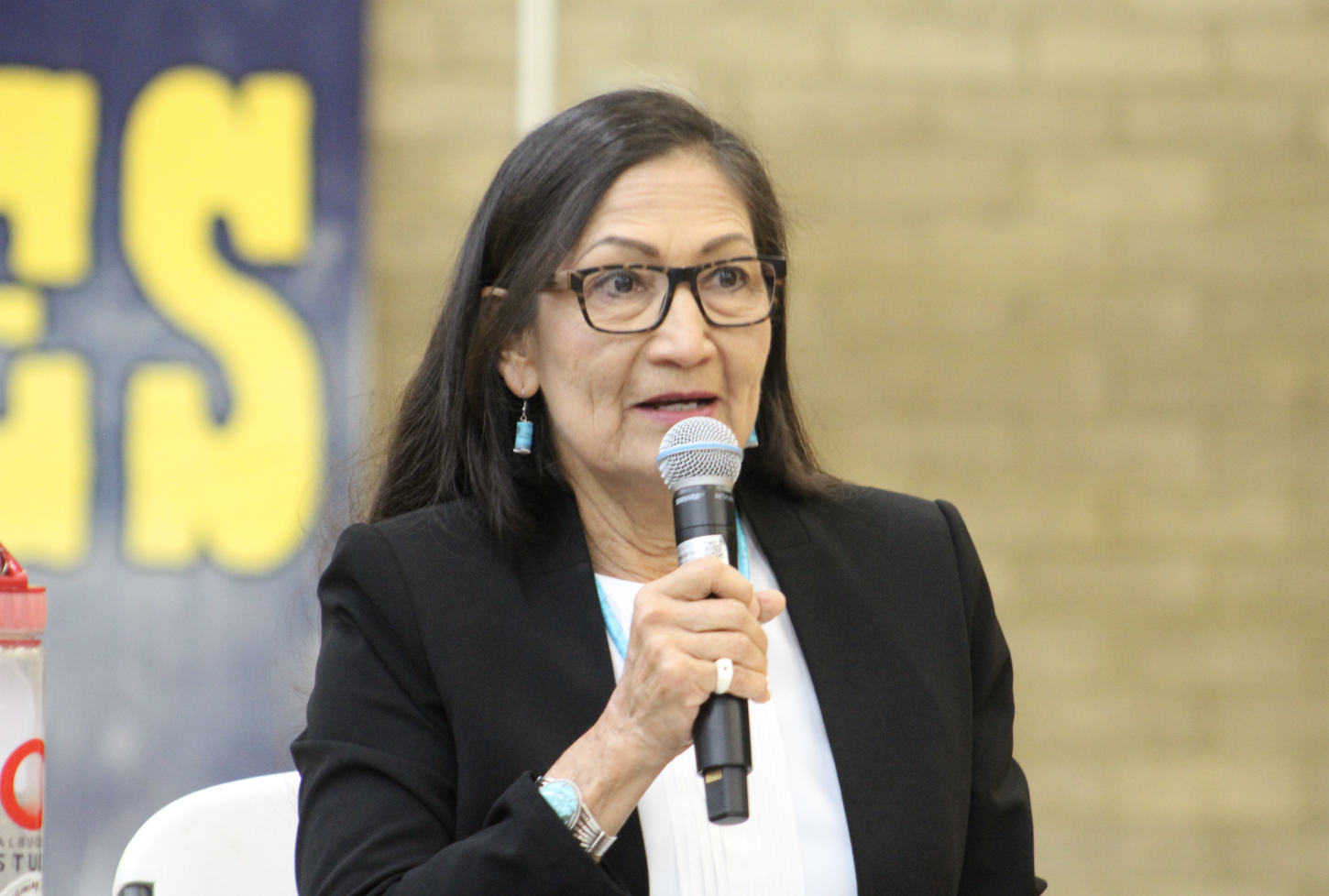
- Details
- By Native News Online Staff
The Department of the Interior today announced nearly $4 million in funding to the Native American Boarding School Healing Coalition (NABS) to support their work of collecting oral testimonies from Indian boarding school survivors and descendants.
The project will focus on gathering first-person survivor narratives and establishing an oral history collection. Survivors will have the opportunity to make their interviews available to federal partners, Tribal governments, policymakers and researchers, and the public, according to a press release from the Interior Department.
“This historic project is a lifeline to preserving the voices and memories of Indian boarding school survivors," said NABS Chief Executive Officer Deborah Parker (Tulalip) in a statement. "Many of our ancestors did not have the chance to share their experiences, so NABS is grateful to Secretary Haaland and the Department of the Interior for this support. This will allow us to continue our work in seeking truth and justice, ensuring survivor's stories are never forgotten, and bringing healing to future generations.”
The work complements the Federal Indian Boarding School Initiative launched by Secretary of the Interior Deb Haaland in May 2022. The initiative called for a nine-month investigation into the fraught legacy of Indian Boarding Schools that the U.S. government ran or supported for a century and a half and resulted in a 106-page report penned by Assistant Secretary of Indian Affairs Bryan Newland.
As part of Newland’s recommendations, Secretary Haaland launched “The Road to Healing” year-long tour in May 2022 to meet with boarding school survivors and their descendants across the country and hear their stories. In the year since, Haaland and Newland have made nine stops at tribal lands across the country.
NABS’ work of collecting oral histories will build upon Haaland’s Road to Healing work to build a permanent oral histories collection on federal Indian boarding schools. In April, The National Endowment for the Humanities (NEH) committed $4 million to support the digitization of records and collection of oral histories from the more than 400 Indian boarding schools the United States operated or supported from the mid-1800s through the 60s. Part of this grant funding is being directed towards NABS, according to a press release from the Department of the Interior.
Volume 2 of the Federal Indian Boarding School Investigation is due out by the end of 2023, according to the Department of the Interior. That report will focus on: locations of marked or unmarked burial sites associated with the Federal Indian boarding school system; names, ages, and tribal affiliations of children interred at such locations; and an estimation of federal dollars spent supporting the Federal Indian boarding school system.
More Stories Like This
Committee Advances 20% Increase to Navajo Child Support GuidelinesNavajo Committee Advances $84M Transportation Improvement Plan
NCAI Passes Two Emergency Resolutions on Immigration Enforcement Activities
Chickasaw Lighthorse Police Officer named Indian Country Law Enforcement Officer of the Year
Indian Gaming Association Rallies Broad Coalition Against Sports Event Contracts It Calls Illegal Threat to Tribal Sovereignty
Help us defend tribal sovereignty.
At Native News Online, our mission is rooted in telling the stories that strengthen sovereignty and uplift Indigenous voices — not just at year’s end, but every single day.
Because of your generosity last year, we were able to keep our reporters on the ground in tribal communities, at national gatherings and in the halls of Congress — covering the issues that matter most to Indian Country: sovereignty, culture, education, health and economic opportunity.
That support sustained us through a tough year in 2025. Now, as we look to the year ahead, we need your help right now to ensure warrior journalism remains strong — reporting that defends tribal sovereignty, amplifies Native truth, and holds power accountable.
 The stakes couldn't be higher. Your support keeps Native voices heard, Native stories told and Native sovereignty defended.
The stakes couldn't be higher. Your support keeps Native voices heard, Native stories told and Native sovereignty defended.
Stand with Warrior Journalism today.
Levi Rickert (Potawatomi), Editor & Publisher


